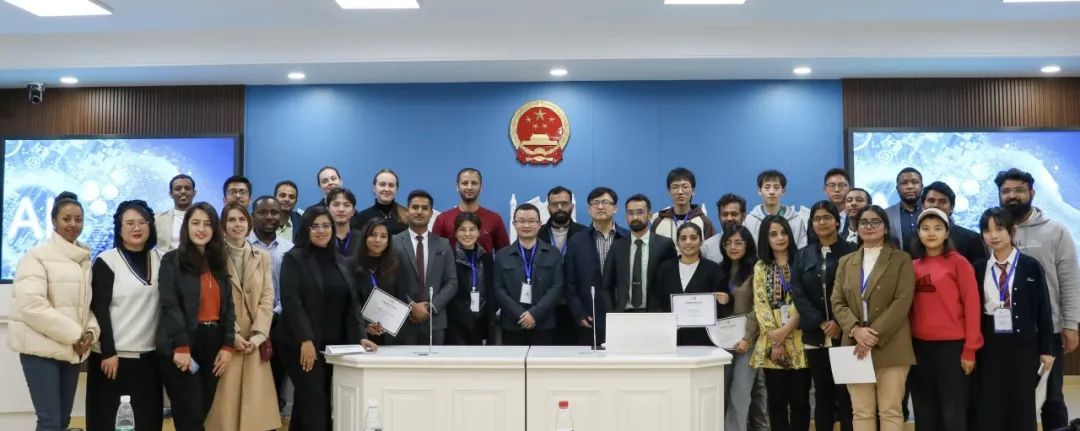In this era the Global Civilization is being heavily impacted by the deployment of Artificial Intelligence (AI) systems, therefore the Law School of Zhongnan University of Economics and Law (ZUEL) organized the ‘Symposium on Rule of Law and International Security concerning Artificial Intelligence’ with the aim of gathering scholars of law, computer science, data science and various other fields to discuss how the international community should contain the risks of AI and promote its benefits while taking into account the rule of law and international security. The Symposium was successfully held from 18-19 November in Wuhan, China.
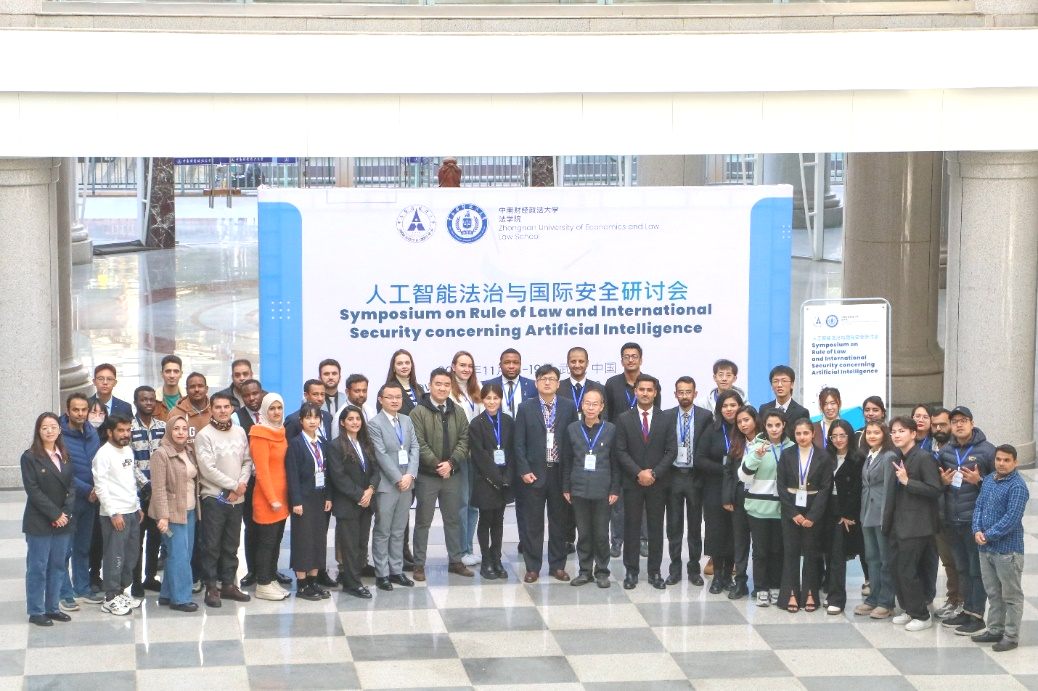
The Symposium was successfully held under the adept chairmanships of Professor Xu Weigong, Director of the International Law Department, PhD scholar Mahar Waqar Fazal, a notable figure as the founder of Tech Lawmaker in Pakistan, and the promising young scholar Aayur Phuyal from Nepal. After recognizing these two dynamic young scholars’ idea, the Law School of ZUEL fully funded this Symposium where they demonstrated the dedication required to turn innovative ideas into reality. Dr. Liang Zhuo, a Lecturer in International Law, played a crucial role in coordinating with these two dynamic scholars while fulfilling his duties as the Director of the Symposium.
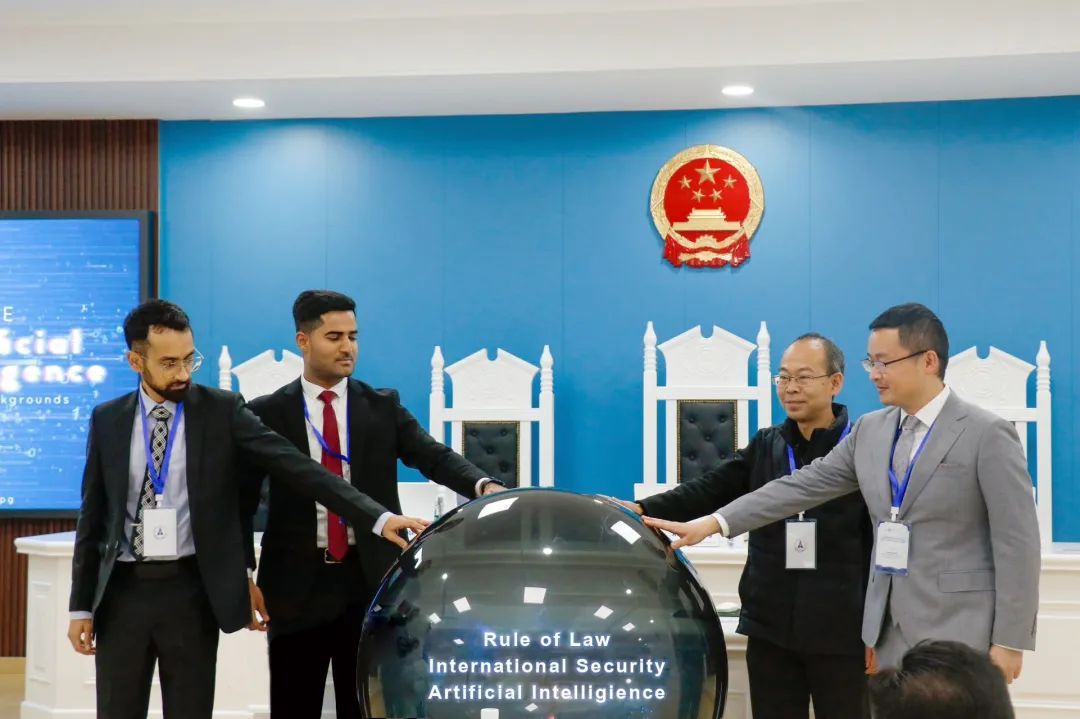
The morning panel of the first day was chair by Professor Xu Weigong himself. It consisted scholars from ZUEL, Huazhong University of Science and Technology and Wuhan University, including Peng Qinxuan, a professor from Wuhan University. A brief introduction to AI and philosophy of AI was thoroughly conversed about. “International security concerning AI: Challenges in Human and Post-Human era” was discussed with interesting questions from the audience. To better understand the Human and Post-Human era, the impact of various technologies throughout the history of human civilization along with how AI will be integrated in almost all aspects of life were realized. The challenges of security faced by the international community concerning AI and the measures to contain and mitigate such challenges for global safety were weighed upon. Then advancing the rule of law especially in international data migration and it’s management was considered.
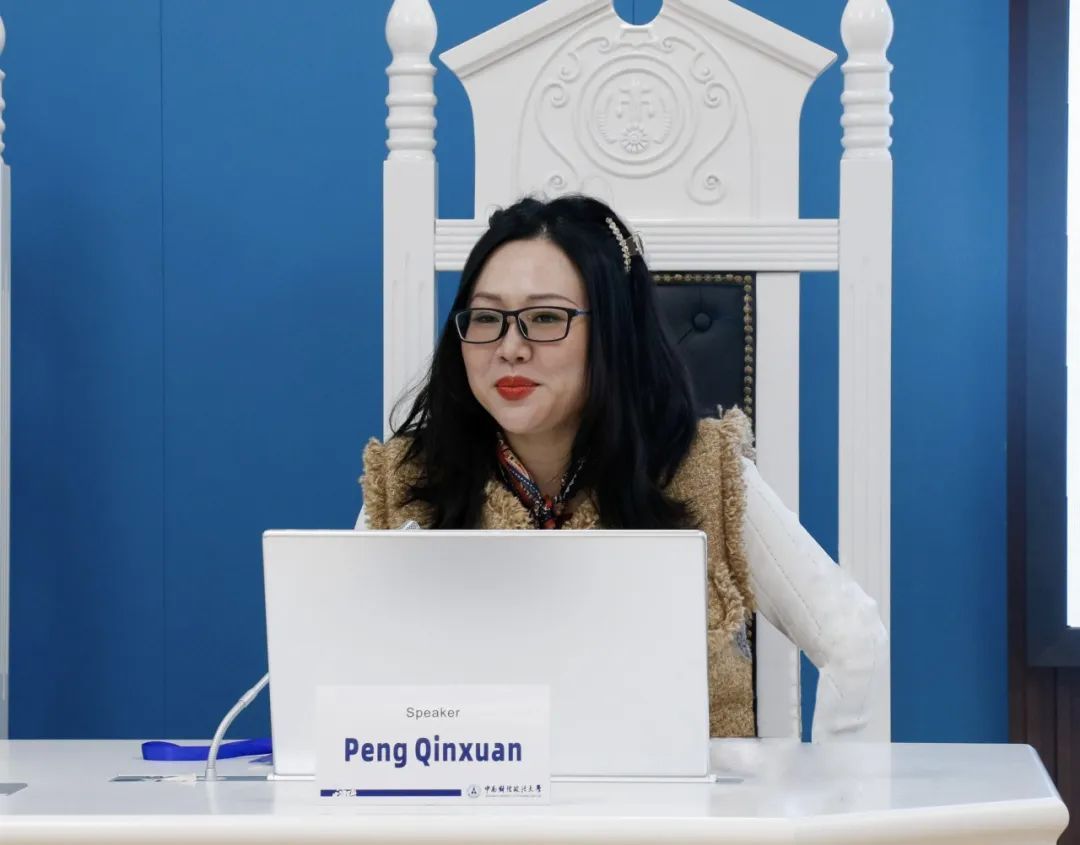
The afternoon panel of the first day was chaired by Leng Xinyu, a professor from China University of Political Science and Law. This panel gave the Symposium a detailed perspective on the legal uses and International Humanitarian Law concerns of Unmanned Maritime Vehicles, Unmanned Aerial Vehicle and Autonomous Weapons Systems. The panel continued with talks on the future of law enforcement in the age of AI and how it can be used to enhance policing. The role of rule of law in regulating AI was also further discussed. The curiosity of a scholar from Peking University Shenzhen Graduate School made the panel lively and more thoughtful.
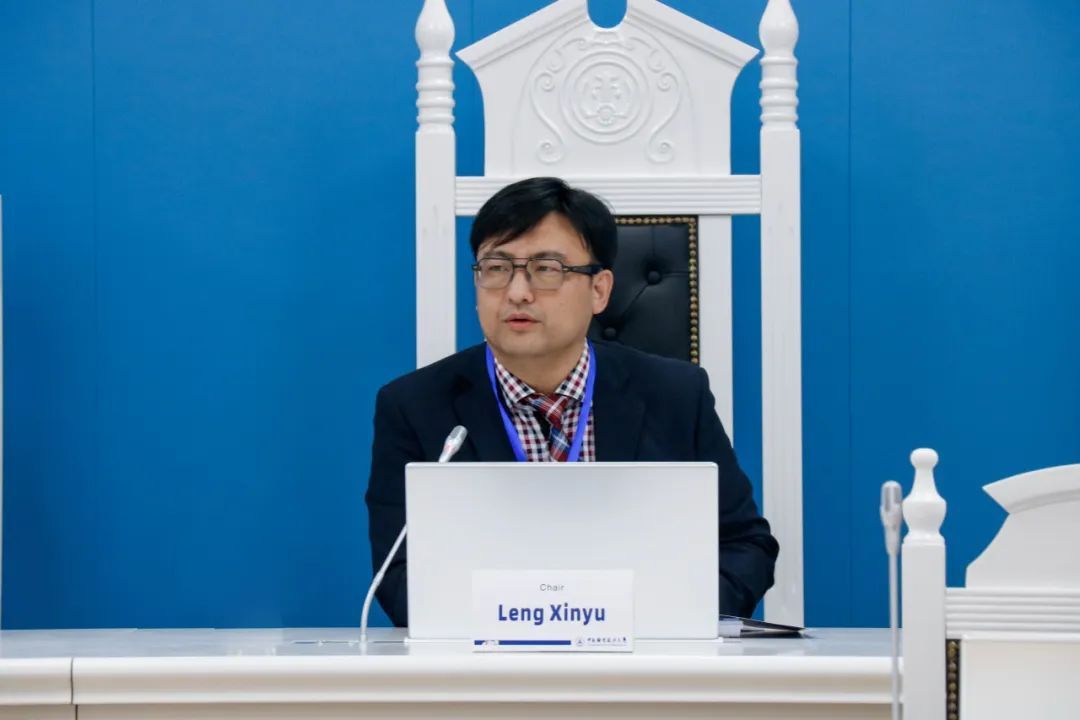
The evening panel was chaired by Li Huanzhi, a prominent lawyer and founder of an AI legal service company called LegalNow. This panel delved deep into the Global Governance issues concerning AI. Talks regarding the need for legal governance of AI and the problems faced in governance were highly prioritized. An optimistic solution of promote innovation in AI development through regulatory sandboxes was one of the solutions to the problems which was discussed earlier. The panel ended with a splendid showcase of initiatives taken by the UNESCO and OECD in governing AI to maintain international security.
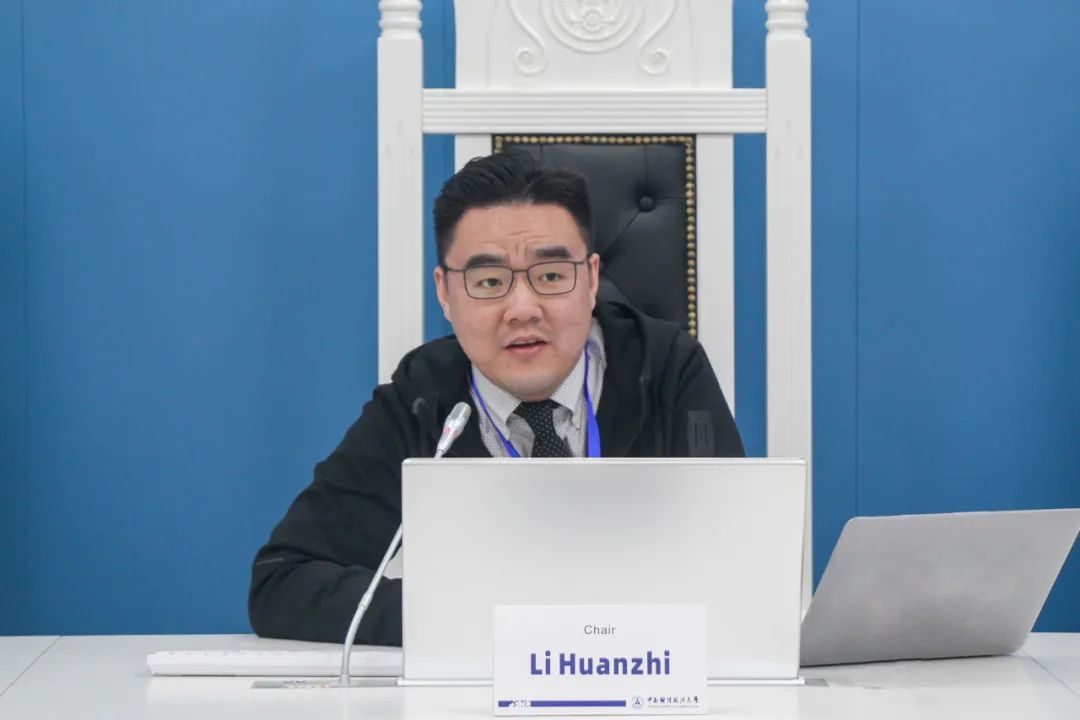
The second day started with all the participants lobbying with each other and exchanging friendly conversations. The morning panel of the second day was chaired by Sun Nanxiang, a professor and Deputy Director of Research Coordination and International Cooperation from the Chinese Academy of Social Sciences. His extraordinary intellect made the whole session valuable. The issues of national security concerns were addressed and their solutions also discussed. The emerging development of AI laws in Russia and their national security was also addressed by two elegant scholars. A scholar from Tsinghua University gave a realistic perspective on the issues of Cyber Operations and Law with case studies from the International Court of Justice. Computer Science scholars from Huazhong University of Science and Technology, Wuhan University of Technology and Central South University, shared with everyone the knowledge they possess on data science, collection of data, use cases of big data and their application in AI. They shared cybersecurity techniques to enhance data security and privacy. They also conversed about how Deepfake technologies erode trust and spread misinformation, hoping in to find a sustainable solution for it.
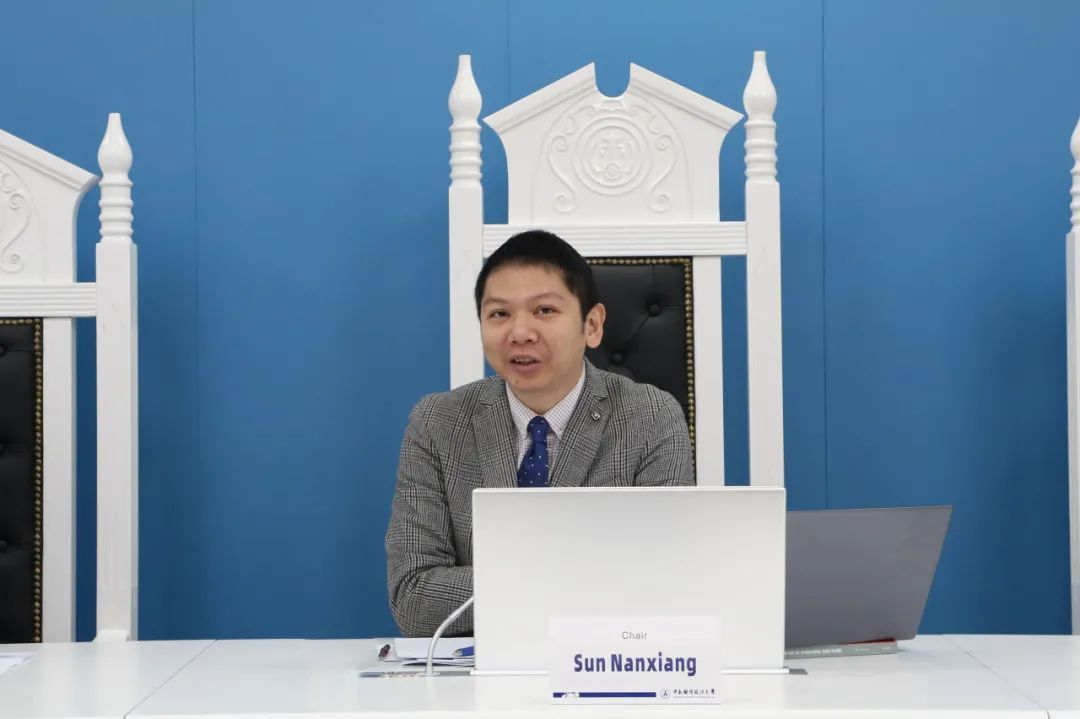
The afternoon panel was chaired by Dai Yihan, a magnetic research fellow from East China University of Political Science and Law. Her published research paper gave a perspective from the World Trade Organization on regulating AI in the context of International Trade Law. A scholar from Hubei Institute of Fine Arts gave an out-of-the-box presentation asking the question: ‘does AI only mimic human creativity or can create something of its own’, the findings of this will be the key to understanding digital superintelligence and it seems that contributions made by artists will be a major factor to determining it. The other members of the panel were experts of Intellectual Property (IP) Law. They indulged in a meaningful discussion by comparing the IP laws of China, European Union and United States of America regarding the contents generated by AI. They also talked about the use cases of AI in patent law and IP implications for International Security in the age of AI. A scholar from Xiamen University started interesting conversations on the copyright infringement conducted by ChatGpt.
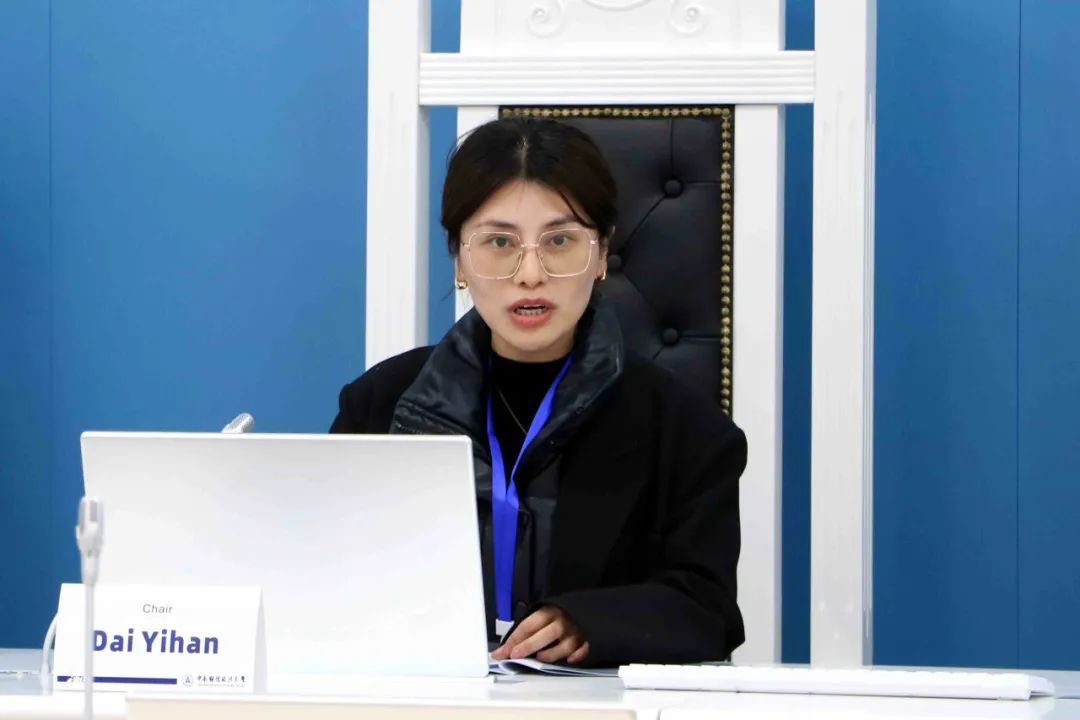
In conclusion, the Symposium was a success where all the participants pleased with the knowledge they received and shared amongst each other. The Symposium realized that before establishing a Global AI Governance Framework, the Regional Governance Framework must be strengthened.
